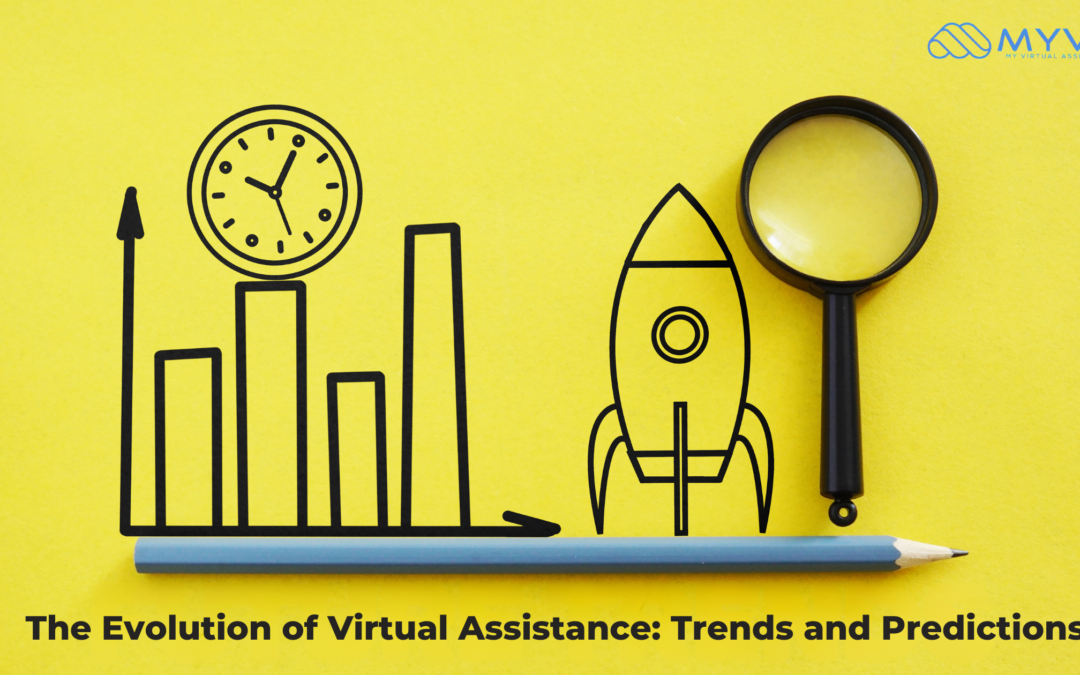Follow US on!
The world of work has changed dramatically over the past few decades, with technology revolutionizing how we conduct business. One of the most significant shifts has been the rise of virtual assistants (VAs), who have become an indispensable asset for businesses of all sizes. This blog post explores the evolution of virtual assistance, the trends shaping the industry, and predictions for the future.
The Rise of Virtual Assistants
The concept of a virtual assistant emerged in the late 1990s and early 2000s, coinciding with the rise of the internet and remote work. Initially, VAs were primarily administrative support professionals, handling tasks such as email management, scheduling, and data entry. However, as businesses became more digital and interconnected, the role of virtual assistants expanded.
Today, VAs are skilled professionals who offer a wide range of services, from social media management and digital marketing to customer service and project management. This evolution reflects the growing demand for flexible, cost-effective solutions that allow businesses to scale without the overhead of full-time employees.
Current Trends in Virtual Assistance:
- AI Integration: Artificial Intelligence (AI) is transforming the virtual assistant industry. From chatbots handling customer inquiries to AI-driven tools that automate repetitive tasks, technology is enhancing the capabilities of VAs. AI is not replacing human assistants but augmenting their abilities, allowing them to focus on more strategic and creative work.
- Niche Specialization: As the demand for virtual assistants grows, so does the need for specialized skills. Many VAs are now focusing on niche areas such as real estate, legal services, or e-commerce. This specialization allows them to provide more targeted support and deliver higher value to their clients.
- Global Workforce: The internet has broken down geographical barriers, allowing businesses to hire virtual assistants from around the world. This global workforce brings diverse perspectives and skills, enabling businesses to tap into a wide range of expertise.
- Increased Demand for Remote Work: The COVID-19 pandemic accelerated the shift towards remote work, and many businesses have continued to embrace this model. As a result, the demand for virtual assistants has surged, with more companies recognizing the benefits of flexible, remote support.
- Focus on Work-Life Balance: Virtual assistance is increasingly seen as a career that offers a healthy work-life balance. Many professionals are drawn to the industry for the flexibility it provides, allowing them to work from home and set their own hours.
Predictions for the Future:
- Advanced AI and Automation: The integration of AI and automation will continue to evolve, making virtual assistants more efficient and effective. We can expect to see more advanced AI tools that can handle complex tasks, freeing up VAs to focus on high-level strategic work.
- Greater Emphasis on Specialized Skills: As the virtual assistant industry becomes more competitive, the demand for specialized skills will increase. VAs who can offer expertise in specific industries or advanced technical skills will be in high demand.
- Virtual Teams and Collaboration: The future of virtual assistance will likely involve more collaboration between VAs and other remote professionals. Virtual teams will become more common, with VAs playing a central role in coordinating and managing these teams.
- Sustainability and Ethical Practices: As businesses become more conscious of their environmental and social impact, there will be a growing demand for virtual assistants who can support sustainability initiatives and ethical business practices.
- Continued Growth of the Industry: The virtual assistant industry is poised for continued growth as more businesses recognize the benefits of remote support. The flexibility, cost-effectiveness, and scalability of virtual assistance make it an attractive option for companies of all sizes.
Conclusion: The evolution of virtual assistance reflects the broader changes in the world of work. As technology advances and the demand for remote work continues to grow, virtual assistants will play an increasingly important role in helping businesses thrive. Whether through AI integration, niche specialization, or global collaboration, the future of virtual assistance is bright and full of opportunities.

